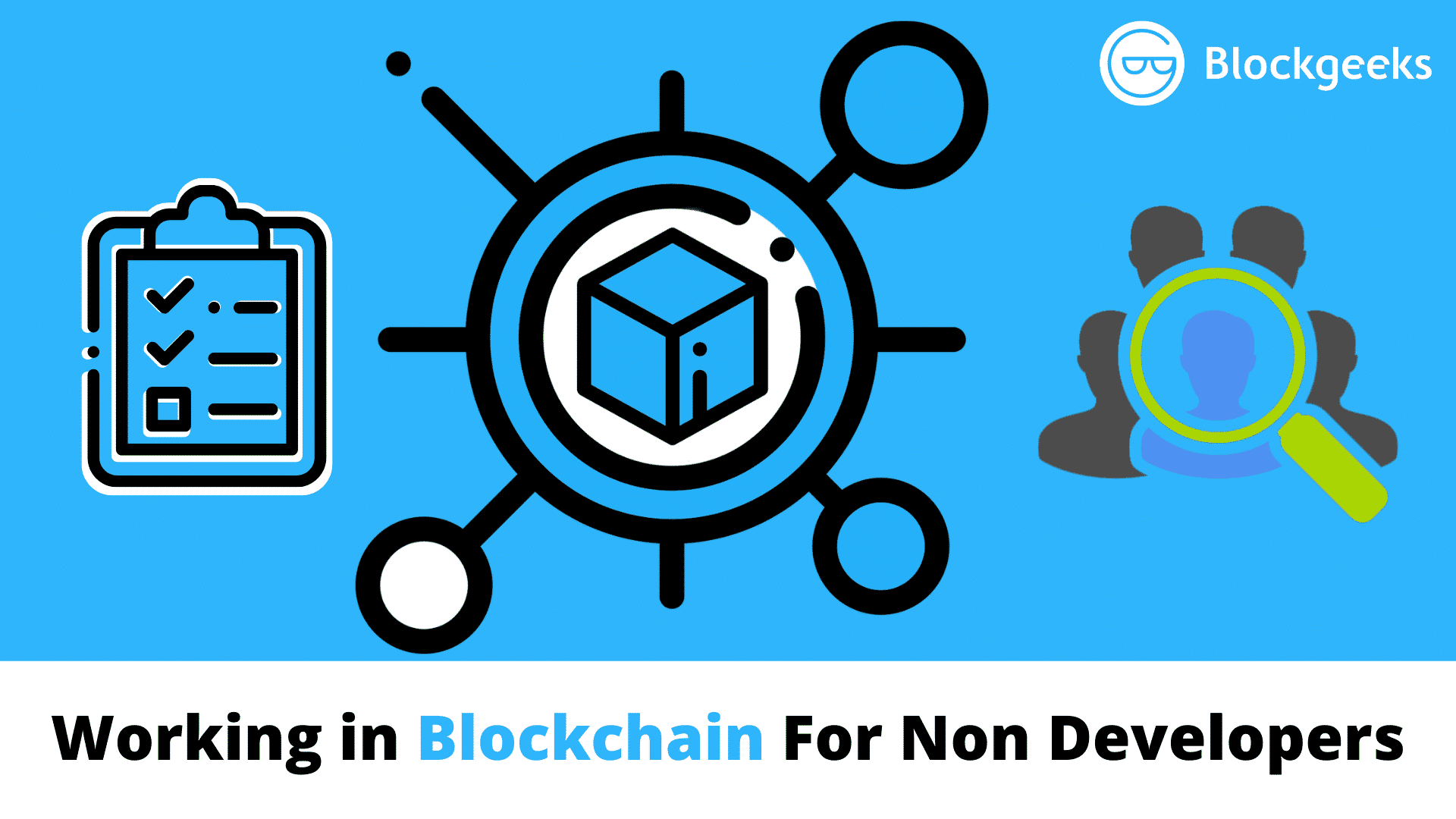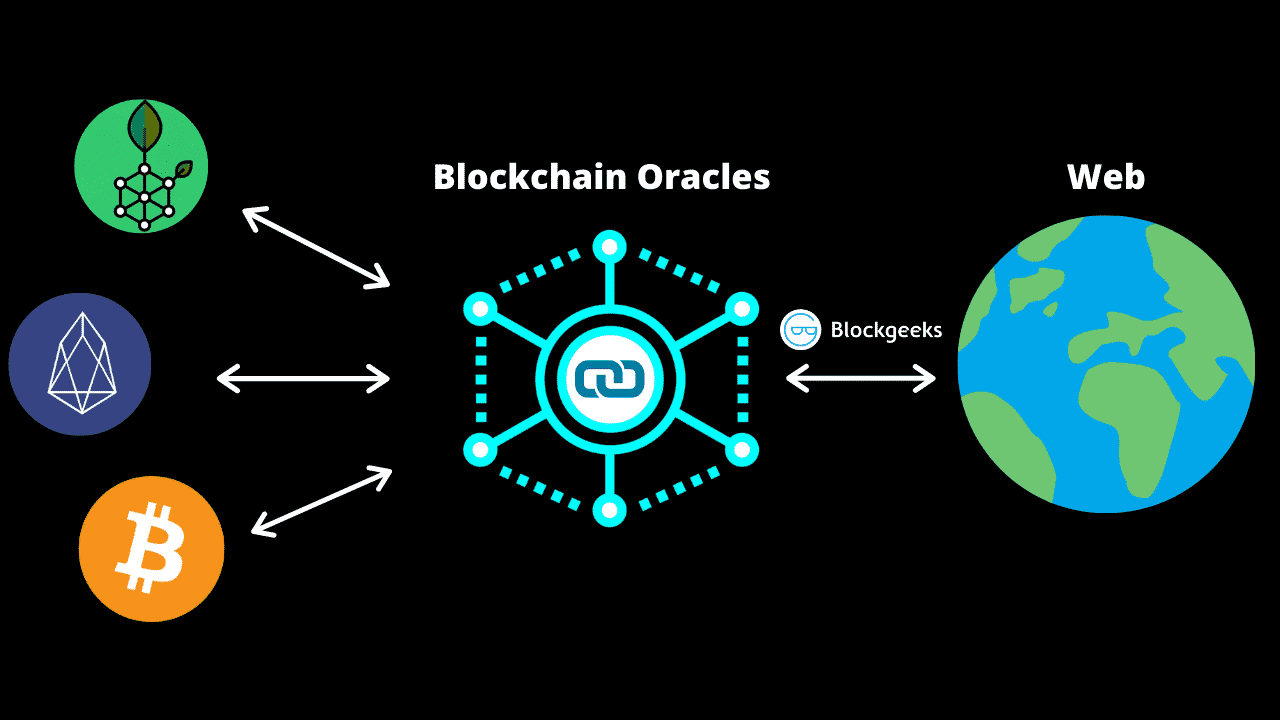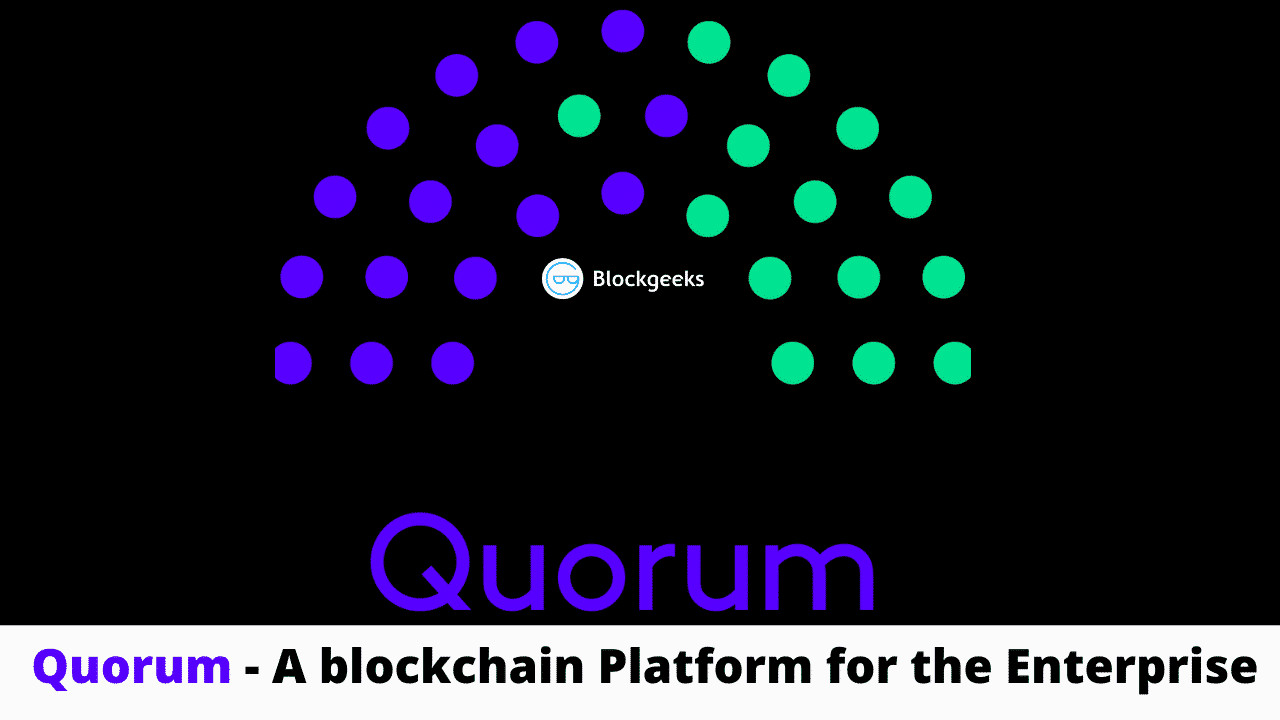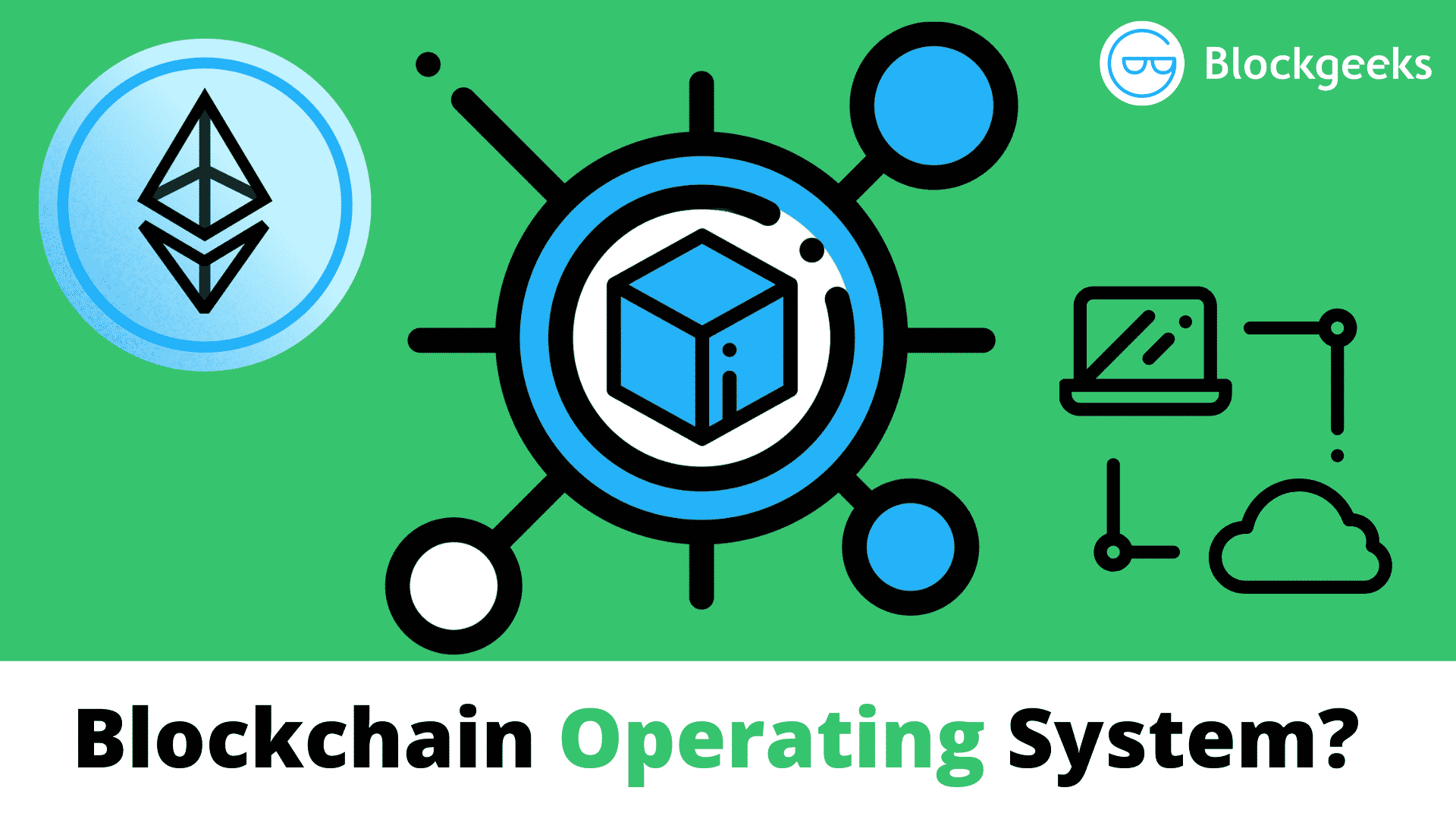Contents
|
|
Working in Blockchain For Non Developers. We’ve all heard about the explosive boom of crypto and blockchain, with many lamenting that they “should have bought Bitcoin” or invested in some ICO early on. The reality is, most of the economic opportunity is still up for grabs, even if you’re not an investor or highly technical. I’m talking about working in the industry.
With over a million Ethereum smart contracts alone, over 50 million Ethereum addresses, and governments and leading corporations around the world working on blockchain, there are a lot of talent needs.
Contents
Higher Salaries
Traditional jobs from accounting to project management to design didn’t just disappear for all these blockchain organizations. As a matter of fact, companies pay a big premium for familiarity with blockchain, even for non-technical roles.
![Working in Blockchain For Non-Developers [No Coding Needed]](https://blockgeeks.com/wp-content/uploads/2020/01/image2-5.png)
Greater Growth
Even more important than the higher salary is the greater opportunity for growth. The LinkedIn
2018 US Emerging Jobs Report showed that blockchain developer was the fastest growing role. As we know, with developers comes the need for additional roles, from designers to project managers to copywriters, and more. Clearly, there’s a massive need for blockchain talent.
More Freedom
Alongside better salaries and growth opportunities, blockchain jobs come with more freedom. You may ask, how is it possible to measure freedom? One powerful indicator is whether or not the job is remote-friendly.
After all, reports show time and time again that remote workers are happier, healthier, and more productive. While the aforementioned greater salaries and growth afford more freedom as well, so does remote work, which the blockchain industry has a strong preference for:
![Working in Blockchain For Non-Developers [No Coding Needed]](https://blockgeeks.com/wp-content/uploads/2020/01/image4-4.png)
More Passion
We’ve established that the blockchain industry has better tangibles like pay, growth, and remote-friendliness, but how can we pin-point passion? After all, the evidence is in: Passionate workers are better workers. You probably don’t need published scientific research to tell you how important passion is in work performance, as anyone who has ever worked a boring job knows that passion is key. As Steve Jobs famously said, “people with passion can change the world.”
Passion is fundamentally about value systems, and value systems are at the very heart of blockchain. Blockchain emerged as a response to the 2008 economic recession, intending to give the power back to the people and remove value-leaching intermediaries. The core of many blockchain startups became the ideas of trust and transparency, or in other words, value systems.
In these ways, you could say the blockchain industry is more passion-driven than most.
Ikigai
You may have heard of the Japanese concept of “Ikigai,” which translates to “reason for being.” While this concept didn’t emerge just to help you find the right job, it can be a useful tool to creating a fulfilling career.

You’ve learned how the blockchain industry offers higher-than-normal salaries, fulfilling one component of Ikigai: Doing what you can be paid for. There are also high growth opportunities, which satisfies the second point: Doing what the world needs. Finally, we’ve explored how value systems drive passion in the industry, predisposing blockchain jobs to invoke more passion, or enabling you to do what you love.
The last point is doing what you’re good at, which ultimately comes down to picking a niche, studying hard, working hard, and not giving up.
While working in the blockchain industry by no means guarantees you’ll find your purpose, or your Ikigai, we can all agree it’s a lot easier when there’s abundant opportunity around. Let’s dive into the different kinds of non-technical blockchain jobs so you can get started.
Research Analytics
While “data science” is deemed the sexiest job of the 21st century, there are other analytical roles that are distinctly less technical, while offering many advantages. I briefly did blockchain research analytics for the Rare Genomics Institute, identifying prospective industry partners with aligning interests.
A research analyst, as the name implies, is someone who researches anything that may be of high-value and high-ROI to a firm, compiling and presenting their findings to relevant stakeholders. This may be information regarding partnerships, deal flow, competitors, or a whole host of other things. In the financial sector, it takes on a definition of its own.
Given the relative nascency of the blockchain industry and lack of pre-existing knowledge bases, research analysts are in high need.
Smart Contract Auditing
Other work I briefly did includes smart contract auditing for companies like VibraVid. This is a lot more technical than research analytics, but is distinct from actual smart contract writing.
There’s a huge market need for smart contract auditing, given the millions of immutable smart contracts out there, each with potential security vulnerabilities. There are billions of dollars at risk, not to mention sensitive data when you get into fields like enterprise blockchain. Further, the number of smart contracts is only growing, so there’s more and more opportunity for someone to combine cybersecurity skills, research skills, and blockchain skills to capitalize on this niche.
Investment Analytics
Similar to research analytics, this is a less-technical spin on data analytics, but it’s applied to investments. I worked as an investment analyst / data analyst for Maven 11 Capital, a blockchain-focused investment fund, where I was mainly responsible for financial portfolio analysis and qualitative and quantitative project research.
As CB Insights reports, investment in the space is rebounding, and with that comes more investment analytics opportunities, as funds need to provide a return for their shareholders, with analytics being a great way to explore new opportunities.
General Advisory
By any measure, creating a successful blockchain startup is an arduous task, or otherwise most wouldn’t fail. With everything from lingering scalability issues in the blockchain itself, to expensive and rare talent, it becomes a veritable necessity to find outside support.
Advisors may help with everything from awareness, including things like marketing, networking, and public speaking, to technical consulting by offering their expertise in a certain area, to executive consulting, where they guide less-knowledgeable leaders, and far more. It all comes down to offering your unique value and skillsets.
I’ve advised blockchain startups in niches from artificial intelligence to the cryptoexchange space to investments to vertical farming to solar power, and more. There’s abundant opportunity and a severe need for experienced advisors in the blockchain space.
Business Development
For any startup, big-name partnerships can serve as powerful external validation. This is why practically any startup landing page, especially in the blockchain space, has a section on “Partners,” or something similar. If they don’t, it’s likely that they aren’t harnessing the power of business development fully, or expanding the business with everything from partnerships to go-to-market strategies to creating relevant marketing material.
Startups need people to send those B2B messages, get on calls, hold meetings, and close deals to grow the business. In short, blockchain startups need business developers.
Exploring Other Jobs
From advising to smart contract auditing, I just scratched the surface of the jobs available in the blockchain industry, focusing on what I’ve personally had experience in.
Of course, there are far more opportunities than the ones I listed, so don’t hesitate to explore on your own — this can be as simple as checking out a job board or messaging a friend!
As this “Blockchain Wheel of Opportunities” shows, you’ll find that the industry has much of the same jobs as any other, but as we’ve explored, they come with advantages in everything from the salary to growth opportunities to remote-friendliness.
![Working in Blockchain For Non-Developers [No Coding Needed]](https://blockgeeks.com/wp-content/uploads/2020/01/image1-6.png)
Landing These Jobs
Actually landing these jobs is an entirely different story, but it starts with some of the concepts we’ve already talked about: Passion and curiosity. You won’t find a job, let alone a fulfilling career, if you’re not firstly looking for organizations that are based on a value system that resonates with you.
As Simon Sinek would say, “start with why.” Any employer or organization is going to be looking for people who are more than button-pushers — they’re looking for people with conviction, and that’s something you can’t fake.
After passion, which covers your bases from cultural fit to career fulfillment, you obviously need the skills. Of course, any decent organization will want you to grow and learn on-the-job, but employers don’t want to risk their limited resources on a new employee who would have to start from scratch.
If you’ve never worked in the blockchain industry, it may sound a bit like the classic Catch-22, you need a job in order to get experience, but you need experience in order to get a job. However, professional work experience can easily be substituted by a number of things, including personal projects, volunteer positions, blockchain courses, and the contentious, but highly-effective free labour method.
Business magnates like Gary Vaynerchuck stand by offering free value, and for good reason. In a world where it seems like everyone is trying to leach value, you stand out from the crowd by giving without expectation. This is especially true in the blockchain industry, where sales people and scam artists abound, making value-givers stand out even more.
The way to do this is incredibly simple. You start with empathy, and asking yourself what your potential employer needs. Do they have social media accounts? If yes, the accounts need exposure. If not, they need social media accounts. Do they have a landing page? If yes, there’s surely room for improvement, and if not, they need a landing page. Do they have a white paper … and on and on.
There are infinite potential ways to offer free value, and the worst-case scenario is always the same: You never end up getting anything in return, but you did learn in the process. It’s a win-win no matter how slim the odds of landing a job.
Job Boards, Meetups, and Other Tactics
Tactics and strategies are honestly the last thing to consider when seeking new opportunities. Yes, you want to hone your resume, your online profile, and hit up networking events and job boards, but it is far more important to focus on your bases: Your passion, your skills, and your value.
That being said, tactics move the needle if you have these bases covered, so it’s important to know the best strategies.
By and large, personal connections and referrals are the best way to land a job. The saying “your network is your net worth” is more than a platitude, as around 85% of jobs are filled via networking. In fact, most jobs aren’t even listed. For what it’s worth, my personal experience reflects this, as of the dozen-plus jobs I had, almost none came from a job application.
If you don’t already have a strong personal brand, including an out-fitted LinkedIn page and personal site, these are good foundations to cover. Further, regularly creating content and connecting with high-level people in the space (of course, offering as much free value as time allows) will help you to get noticed.
After that, attend events in your area. In my experience, Meetup is globally the most common platform, so head there and search for blockchain-related events.
Networking in-person is really not complicated, and the goal is fundamentally the same as online networking: Add value.
These should all be on-going tasks. Consistently improve your LinkedIn, your personal site, your content creation, your value-giving, and everything else to stay top of mind.
Finally, it’s worth it to, at least briefly, cover job boards. Frankly, it’s highly unlikely that you’ll find your next blockchain job by applying for it online, given the statistics we covered. However, it’s worth a shot if your network leaves something to be desired.
For the purposes of this article, there are two kinds of job boards: Blockchain-focused job boards and generic job boards. Generic job boards like LinkedIn and Indeed have a huge advantage in numbers. For instance, LinkedIn has around two-thirds of a billion users. At this point, it’s highly unusual to meet a serious business person without a LinkedIn (with some exceptions like UHNWIs).
Among generic job boards, LinkedIn takes the cake, as its content marketing and personal branding features make it far easier to stand out. Blockchain-focused job boards include Crypto Jobs List, Blocktribe, Gitcoin.co, and even CoinMarketCap’s job board. They’re all worth a look.
Conclusion: Blockchain For Non Developers
The blockchain market is rapidly evolving, and this pace of change may make the job market seem daunting. However, it’s ultimately similar to any other industry. When in doubt, add value. With these tips, you’ll be well on your way to making an impact with blockchain.






![Blockchain Government Use cases - [Algorand, ICON, Power Ledger, and RSK]](https://blockgeeks.com/wp-content/uploads/2020/04/Blockchain-Government-Use-cases-Algorand-ICON-Power-Ledger-and-RSK.png)

I searched indeed and cannot find any blockchain jobs posted.
I guess the best way is to build a network, at the same time you (always) educate youself. Passion is key. If you are familiare with DiFi, deep knowlege about small markedcap coin you can sellyour advice to investors, or do speaches. I bet this ecosystem will use less 9-4 worker, so I recomend you to meke a brand of you self. A lot of people are interested in crypto investmens, but are afraid of scammers, and dont even know how to set up a wallet. Social media, met-ups use your creativity.
man, i truly want a job in this amazing world of crypto!
thanks
Oh I see
how?
`[spoiler title=” “]
5
5